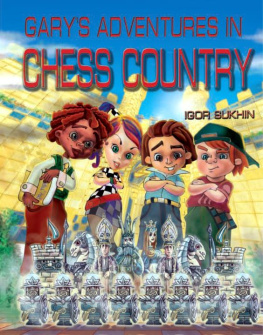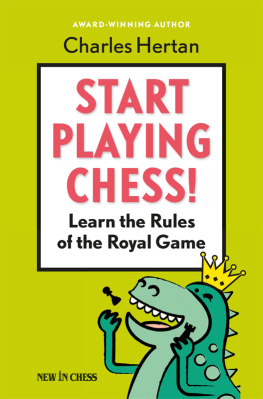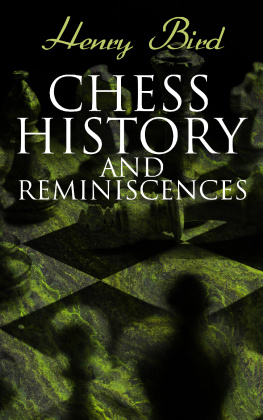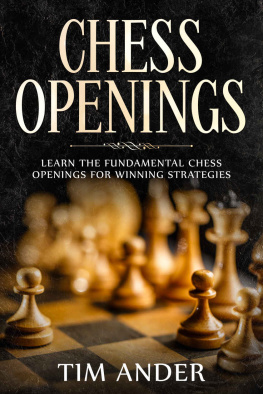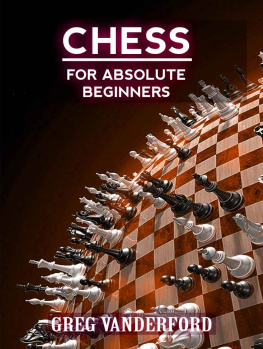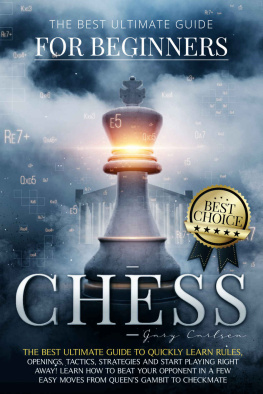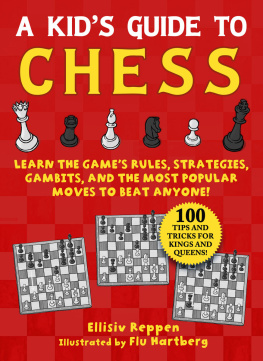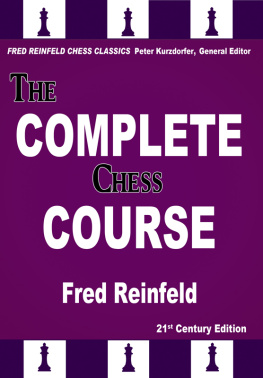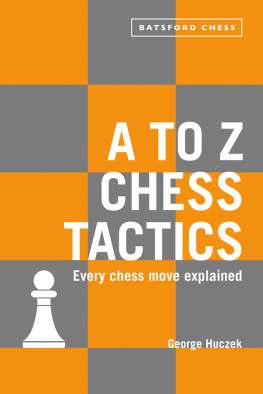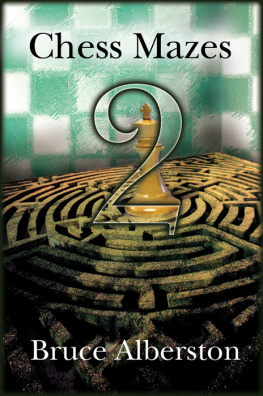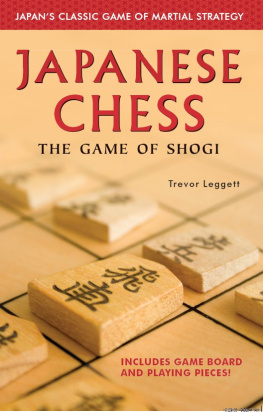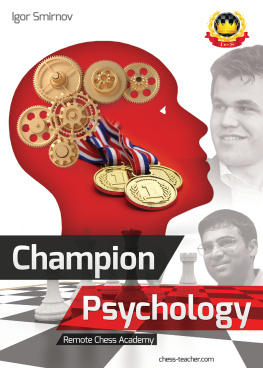





Chapter 1
Chapter 2
Chapter 3
Chapter 4
Chapter 5
Chapter 6
Chapter 7
Chapter 8
Chapter 9
Chapter 10
Chapter 11
Chapter 12
Chapter 13
Chapter 14
Chapter 15
Anyone can reap benefits from learning chess, but young children often gain the most from the game. Chess provides children the opportunity to learn pattern recognition and critical thinking skills. Practicing basic chess skills motivates them to think, which, in turn, builds nerve connections in the brain.
Social benefits are often reaped as well. The game of chess rewards courage, sportsmanship, and self-control, while allowing children to positively interact with their peers. Chess players who learn to win and lose graciously often make many lifelong friends as a result. Perhaps the greatest social benefit chess can offer is an avenue for earned success, the kind that helps children build the confidence and self-esteem they need to excel in school.
Many parents feel daunted by the prospect of trying to teach their young children to play chess. If you are unsure of how to teach your child the game, fear not. The book you now hold in your hands, Igor Sukhin's Gary's Adventures in Chess Country, has been carefully designed to take the intimidation factor out of learning chess. Set in the magical realm of Chess Country, it reads like a children's bedtime story; yet, at the same time, it introduces the game of chess gradually, using stories, puzzles, riddles, and quizzes.
Too often I have seen young students overwhelmed by the task of learning the moves of the chess pieces. If the entire game is presented at once, without time for any review, frustration often results. Gary's Adventures in Chess Country continually reinforces what has been learned through its stories and chess problems. By the time your child plays his or her first game, he or she will already have solved dozens of puzzles reinforcing each chess rule. He or she will be able to make chess moves with confidence.
Finally, Gary's Adventures in Chess Country is more than just an instruction manual. It is a tool to help you create your own unique chess adventure with your child. It is an invitation to a chess expedition, an exciting journey that just keeps getting better. It is my hope that after reading about the adventures of Gary, Cassie, Riddles, and their friends, your child will embark on his or her own richly rewarding chess adventures.
Susan Polgar
Women's World Champion, 1996-1999
Sometimes, when you want something interesting to happen to you badly enough, your wish can come true. Or, at least Gary hoped so. His parents were away on a trip and had left Gary with the most boring babysitter in the history of the universe. So he really, really wanted something interesting to happen to him right this very minute! But Gary had no idea he'd end up starring in a magical story. And this is how it happened.
On Sunday morning, the doorbell in Gary's apartment rang. He hoped it was one of his buddies. But Gary opened the door and, instead of one of his friends, he saw a girl in a checkered dress.
"Hello, Gary," the girl said. "My name is Cassie. I have come to take you to Chess Country."
Before Gary could reply, or even ask how she knew his name, his mysterious visitor took him by the hand and led him to a six-seated tricycle parked nearby. Cassie got in front, and Gary made himself comfortable in one of the back seats.
And so the journey began. The tricycle traveled at an unbelievable speed. Cities, forests, and rivers came up and fell behind in the blink of an eye. With his heart pounding in his chest, Gary knew something wonderful and amazing was about to happen. Then Cassie slowed down and stopped the trike in front of a beautiful pavilion that looked like a tower.
"This is the Chess Pavilion," Cassie said. "Here we will have our first lesson."
Outside, a boy about Gary's age was playing. He scowled when he saw Gary and Cassie.
"You're going to learn chess?" he asked with a sneer. "You'll never beat me, no matter how much you practice."
"That's Zug," Cassie said. "Just ignore him. That's how he is to everyone."
Gary followed the girl inside and froze in amazement. On a massive table that gave off soft, pink light, lay a big board with many dark and light squares.
"This is a chessboard, where chess battles are fought," Cassie explained. "The chessboard is divided into equal square pieces. The white ones are called light squares. The black ones are dark squares."

Light squares

Dark squares
"Light squares, dark squares," Gary repeated.
Suddenly, the squares on the board quivered and darted off to the ground. Black and white, they began to dance around Cassie and Gary.
"These are my little friends," Cassie said with a smile. "Here in the Chess Pavilion, the squares are magical."
Soon, the squares stopped dancing, and in a flash they were back on the board.
Gary was puzzled. Did that really happen, or was he imagining things? He stepped closer to the board to see what was going on and almost fell, stumbling over something. On the floor he saw a thick notebook, the size of The Yellow Pages. Gary picked it up and read from the cover: "Riddles' Pad."
"Oh! This notebook belongs to my friend, Riddles," Cassie said. "It's great that you found it! It's full of jokes, puzzles, and chess exercises. If you read it and try to answer the questions, even a little at a time, it will help you to learn the game of chess. Shall we start?"
Gary nodded, still too surprised by what was happening to speak.

